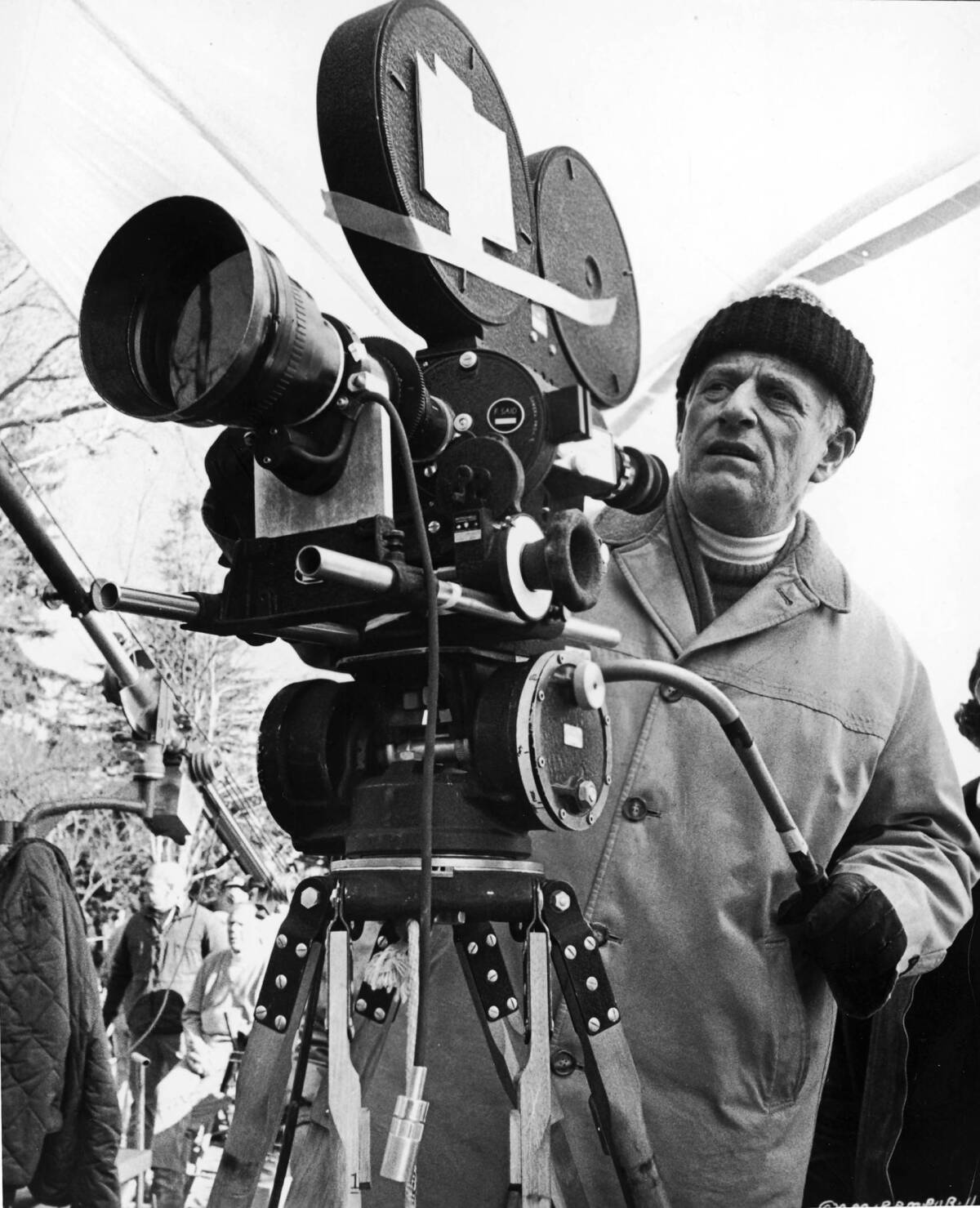Stanley Kramer: Hollywood’s moral compass

As both a producer and a director, Stanley Kramer was fearless.
As a scrappy young independent producer in the late 1940s, he bought the rights to Arthur Laurents’ “Home of the Brave,” the hit 1946 Broadway play which exposed anti-Semitism in the military during World War II. But Kramer decided to up the ante, transforming it into a drama about racism, casting young African American actor James Edwards as the soldier who must battle discrimination in his all-white platoon.
“He felt that was the higher risk,” said his widow, Karen Sharpe Kramer, who added that the controversial subject matter caused “Home of the Brave” to be picketed when it was released in 1949. “He was full of integrity and honesty.”
PHOTOS: The Stanley Kramer legacy
Kramer, who died in 2001 at age 87, was Hollywood’s moral compass. He revisited themes of racism in films he directed, such as 1958’s “The Defiant Ones” and 1967’s “Guess Who’s Coming to Dinner,” and he also tackled such hot button topics as anti-Semitism and the Holocaust (“Judgment at Nuremberg”), religious conservatives (“Inherit the Wind”), the futility of a nuclear war (“On the Beach”) and animal rights (“Bless the Beasts and the Children”).
His films may have angered some, but most of his 35 pictures won critical and commercial acclaim, receiving 85 Oscar nominations and winning 16 Academy Awards. In addition, Kramer received the Irving Thalberg Award in 1961 for his achievements as a producer.
The UCLA Film & Television Archive is celebrating the filmmaker’s legacy with a new retrospective, “Champion: The Stanley Kramer Centennial.” It begins Friday at the Billy Wilder Theater and continues through Sept. 29.
The series kicks off with the new digital restoration — funded by the Hollywood Foreign Press Assn. and the Film Foundation — of Kramer’s rarely seen 1951 film version of Arthur Miller’s “Death of a Salesman.” Directed by Laslo Benedek, it stars Fredric March in his Oscar-nominated performance as the tragic Willy Loman. Larry King will appear in person to talk about the film and Kramer.
Shannon Kelley, the archive’s head of public programming, said “Death of a Salesman” fits into Kramer’s social-conscious agenda. “It’s a very complicated story about a guy’s death struggle with success and calls into question the whole American dream,” he said.
PHOTOS: Behind-the-scenes Classic Hollywood
The series features several of Kramer’s best-known productions, including two Fred Zinnemann-directed classics — 1950’s “The Men,” which marked Marlon Brando’s film debut, and 1952’s “High Noon” with Gary Cooper in his Oscar-winning performance. Also included: 1954’s “The Caine Mutiny,” directed by Edward Dymtryk, which stars Humphrey Bogart in his Oscar-nominated turn as Capt. Queeg; 1950’s “Cyrano de Bergerac,” for which Jose Ferrer won the lead actor Oscar; and the 1949 boxing drama “Champion,” directed by Mark Robson, which made Kirk Douglas a bona fide star and earned him his first Oscar nomination.
“He was really one of the first kind of independent producers of the post-World War II era,” said Jan-Christopher Horak, head of the UCLA archive.
“He did all sorts of things in the studio system, and then he becomes a producer and almost immediately has quite a successful career with ‘Champion’ and ‘Home of the Brave.’ His career really starts to take off,” Horak said. “He’s a creative producer — he picks the scripts and mostly cast the actors and works over and over again with directors like Zinnemann and Dymtryk.”
The UCLA retrospective also includes several of the films Kramer directed, such as “The Defiant Ones,” 1971’s “Bless the Beast and the Children,” 1965’s “Ship of Fools” and 1959’s “On the Beach.”
PHOTOS: Hollywood Backlot moments
“He made ‘On the Beach’ about nuclear holocaust to stop people form using the atomic bomb,” Karen Kramer said. “In 1959, many Americans were terrified of Russia and building bomb shelters in their backyard.” To further get his message across, the film premiered simultaneously in the U.S. and several European cities, including Moscow.
“On the Beach,” added Kelley, is one of the “most fantastic examples” of Kramer’s skill as a moralist and socially conscious filmmaker. “In depicting the end of humanity, he locates the dignity and beauty in humanity.”
For more information go to https://www.cinema.ucla.edu or or https://www.stanleykramer100.com.
Are you an aficionado of iconic Hollywood? Like us on Facebook and go to the Classic Hollywood landing page to get more Times coverage.
More to Read
Only good movies
Get the Indie Focus newsletter, Mark Olsen's weekly guide to the world of cinema.
You may occasionally receive promotional content from the Los Angeles Times.










